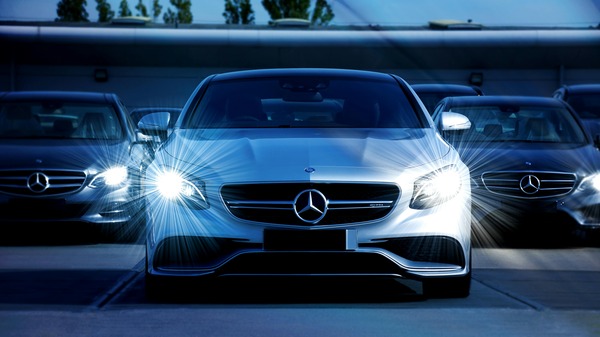July 2025 – Stuttgart, Germany — Luxury automaker Mercedes-Benz has reported a significant 9% decline in global vehicle sales for the second quarter of 2025, delivering a total of 547,100 cars and vans worldwide. The decline reflects a combination of rising global trade tensions, slowing demand in key markets, and a noticeable contraction in the electric vehicle (EV) segment.
According to the company’s quarterly report, electric vehicle deliveries fell sharply by 18%, reaching only 41,900 units a setback for the German manufacturer, which has heavily invested in electrification as part of its long-term sustainability strategy.
Key Markets Hit by Tariffs
The most pronounced sales declines were recorded in the United States and China, two of Mercedes-Benz’s largest markets. Analysts attribute the slowdown to ongoing tariff disputes and rising import duties, which have led to price increases for consumers and disrupted the supply chain.
“The impact of global trade friction, especially between major economies, has been a clear obstacle this quarter,” said an internal source familiar with Mercedes-Benz’s international operations. “Logistics costs are up, and customer sentiment in the EV market is weakening amid rising costs and infrastructure challenges.”
European Market Shows Resilience
Despite the global downturn, Mercedes-Benz found support closer to home. Sales in Germany rose by 7%, while overall European sales increased by 1%, signaling steady consumer confidence within the EU. Strong performance in domestic and regional markets provided a partial cushion to global losses.
Industry experts suggest that European incentives for EV purchases, combined with brand loyalty and a strong dealer network, helped Mercedes-Benz maintain momentum in its core territories.
EV Strategy Under Review
Mercedes-Benz has positioned itself as a key player in the premium EV segment, with models like the EQE, EQS, and EQB forming the backbone of its electric lineup. However, the recent slowdown in EV deliveries is prompting a strategic reassessment.
“We remain committed to our electric future,” a company spokesperson said, “but we must adapt to real-world conditions, including customer adoption rates, cost pressures, and evolving regulatory frameworks.”
Mercedes-Benz is reportedly looking to optimize its global production footprint and may consider shifting more manufacturing to tariff-neutral regions or boosting local production in North America and Asia.
Looking Ahead
The Q2 results come at a time when the global automotive industry is navigating a complex mix of inflation, geopolitical tension, and evolving consumer preferences. While Mercedes-Benz remains one of the strongest luxury brands worldwide, the challenges of 2025 are forcing even legacy automakers to rethink their strategies.
The company is expected to release further details on its mid-year forecast and product roadmap during its upcoming investor call.







